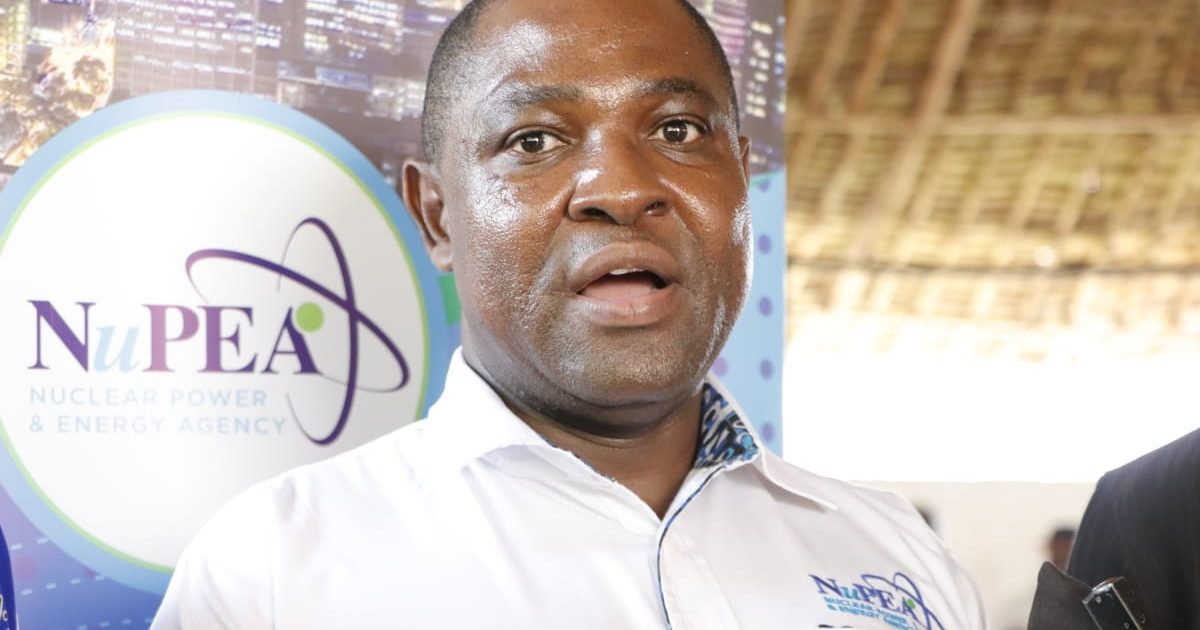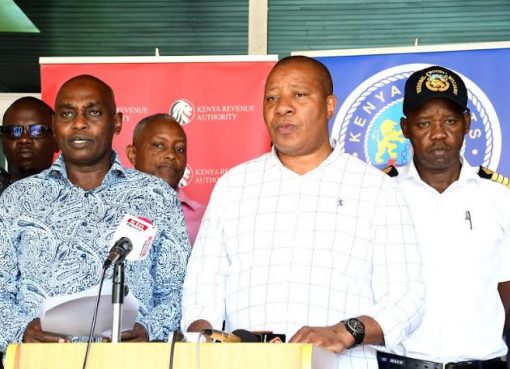Kenya aims to have its first nuclear power plant up and running by the year 2038 to cater for growing power demand in the country.
According to the Nuclear Power and Energy Agency (NuPEA), the mooted nuclear power plant of 1,000 megawatts reactor is to be commissioned by the year 2038.
The country is looking to build more reactors to avoid future power supply shortages and curb emissions and accelerate nuclear power and hydro projects.
To help embrace nuclear energy, NuPEA has signed an MoU with China, Russia, South Korea and Slovakia for nuclear training of its personnel.
This was disclosed by Justus Wabuyabo, Director of Legal and Regulatory Services and Corporation Secretary, for the Nuclear Power and Energy Agency (NuPEA), formerly known as Kenya Nuclear Energy Board (KNEB).
Wabuyabo says Kenya has since 2010 shown interest in developing nuclear power programs to augment existing power shortfalls and that NuPEA is in charge of spearheading this sector in the country.
“As a country, we have acknowledged the potential benefits of adopting nuclear power and have taken the policy decision to include it as a technology option in our national energy policy,” Wabuyabo said.
He says clean and sustainable energy is essential for sustainable development and is considered one of the infrastructure enablers of the socio-economic pillar of Vision 2030.
The national development blueprint recognizes increased energy demand in Kenya and thus needs to generate more power to meet the development needs at a lower energy cost.
He says fossil fuels comprise the lion’s share of Africa’s current energy generation mix with hydropower making the only meaningful renewable energy contribution.
The NuPEA corporation secretary said the need to look at nuclear energy as a major component of the country’s future energy mix is imperative, as it does not emit greenhouse gases during operations.
“Nuclear power is sustainable, environmentally friendly, economically competitive, and safe in comparison to other power sources,” he said during an interview in Kwale town.
The NuPEA official said they are rolling out public participation and awareness forums in the counties to collect views from citizens before the plant is built.
“High power prices also wear away Kenya’s manufacturing sector competitiveness regionally and globally thereby denying the domestic industries of revenue,” noted Wabuyabo.
Wabuyabo did not say how much the plant might cost or where it would be located, only saying it would run into billions of shillings.
He noted that as energy-dense fuel used in nuclear power stations is able to generate a stable base load of power, nuclear power carries strong potential to alleviate energy poverty in Kenya.
He said Kwale and Kilifi are some of the counties that have been identified as potential locations for the power station as they are located near a large water body, the Indian Ocean.
The official revealed that site selection is an important stage in the nuclear power plant programme with the goal of protecting the plant against external threats as well as minimizing any social and environmental determinants and threats that may arise from it.
Wabuyabo says although South Africa is the only African country producing nuclear power commercially, other governments on the continent are exploring nuclear energy as a climate-friendly alternative to fossil fuels.
The official said Kenya joins several African countries eyeing nuclear energy such as Egypt, Tunisia, Uganda, Nigeria, Ghana and Mauritius among others.
He said the countries are at various stages of commissioning, shopping for vendors and mapping appropriate sites in the roll-out of nuclear power energy.
Egypt is currently the only country to have begun construction, following the formal launch of a site in July being developed by Russian state energy corporation Rosatom.
Speaking at a public forum to get views from the public on the proposed project in Diani Township Kwale County, Wabuyabo said NuPEA is currently undertaking reactor technology assessment to identify the ideal reactor for the country based on the existing technologies in the market.
Wabuyabo said NuPEA, the National Environmental Management Authority (NEMA) in conjunction with other relevant state agencies has begun an environmental impact assessment (EIA).
He said hopefully the nuclear power plant will better millions of peoples’ lives as nuclear is “clean and sustainable energy,”.
Wabuyabo says Kenyans should not be scared by the news of nuclear power plants noting that civilian nuclear programmes do not give countries the ability to make atomic weapons.
The impact of nuclear accidents has been a topic of debate since the first nuclear reactors were constructed in 1954 and has been a key factor in public concern about nuclear facilities.
NuPEA acknowledges that technical measures to reduce the risk of accidents or to minimize the amount of radioactivity released to the environment have been adopted, however, human error remains and there have been many accidents with varying impacts as well as near misses and incidents.
By Hussein Abdullahi




